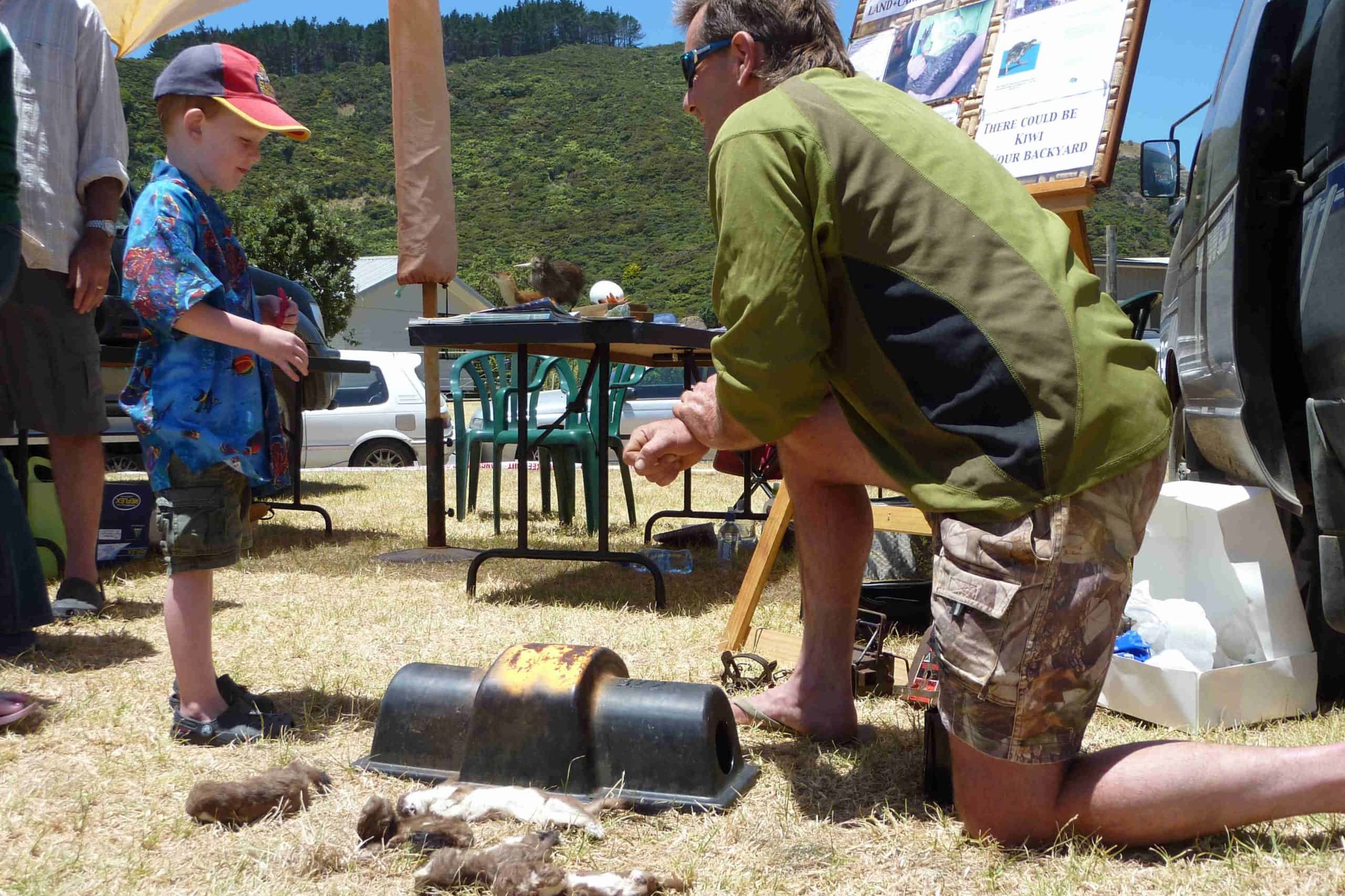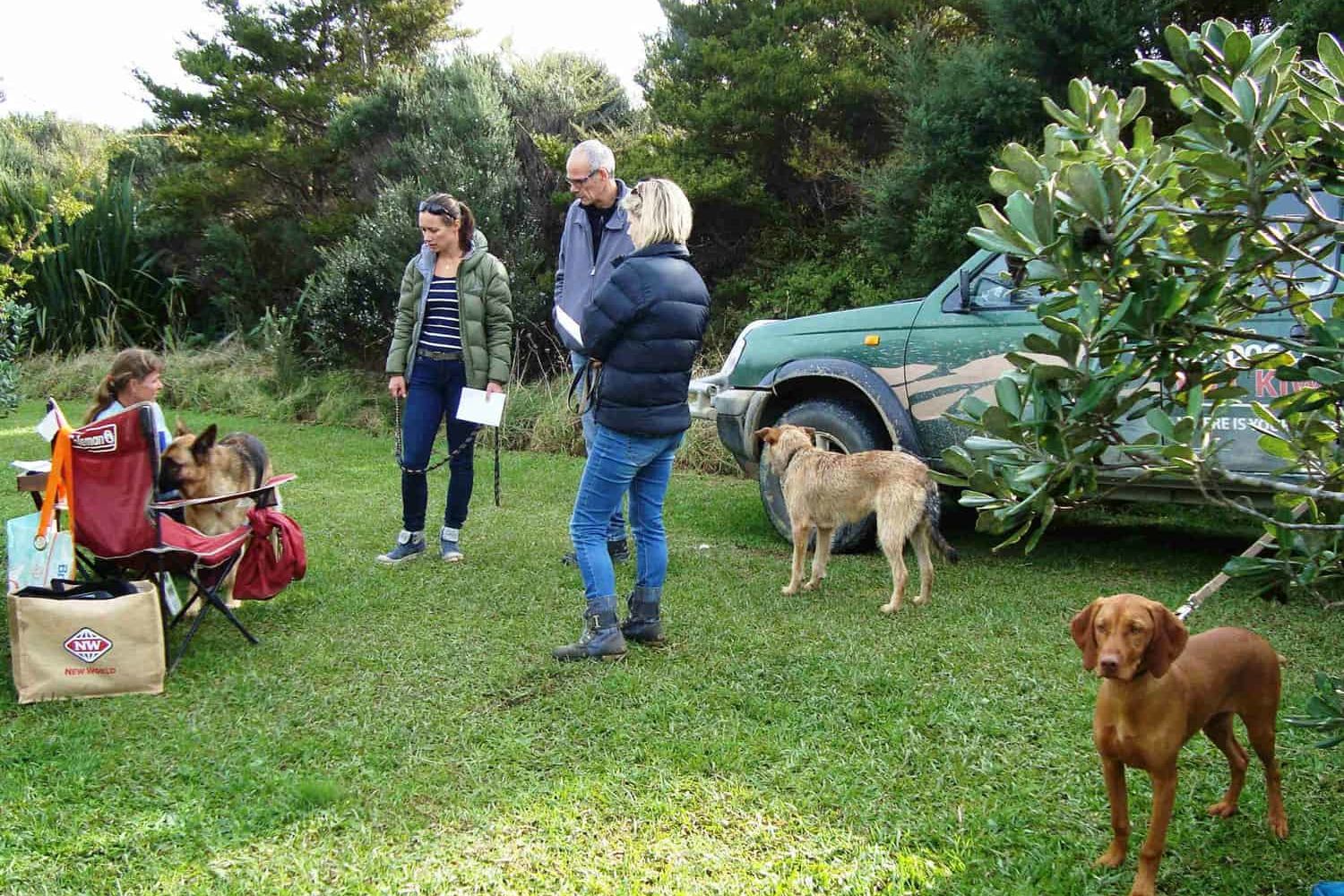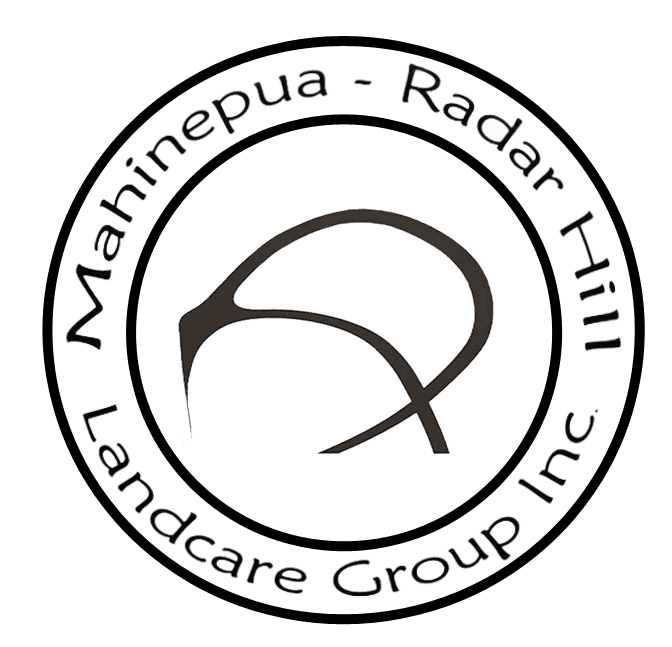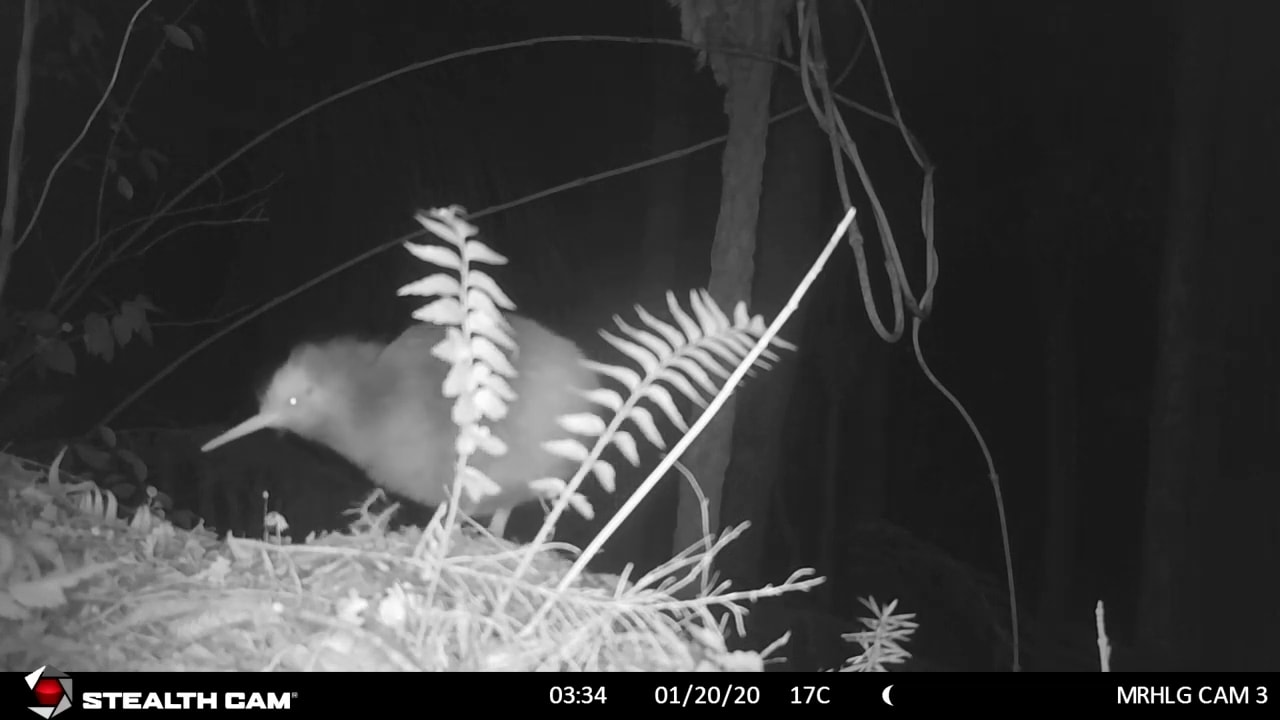Current Projects
Learn about some of our current and ongoing projects.
Kiwi Monitoring
MRHLG is the only Landcare group in the Mid-Far North with kiwi fitted with transmitters. These two kiwis over the years have given the local community, Kiwi Groups and DOC an insight into kiwi activities, behavioural changes in drought years and the success of nesting.
Historic video nest monitoring of MRHLGs kiwi wearing transponders highlights how at-risk kiwi is from stoats, pigs, feral cats and uncontrolled dogs. Extrapolate the video camera footage to scenarios happening all over Northland – the information is vital.

Inspiring our young. Education is key to our project.
Rat knock-down
There are two main species of rat on the New Zealand mainland – the Ship rat, able to climb trees and the Norway rat, usually found near water. Ship rats are the most common rat species in Northland forests.
Both species are rapid breeders and eat a wide range of foods, including invertebrates, lizards, bird eggs, chicks, native berries & seeds.Our trap-lines target rats all year round and for the maximum benefit to wildlife and tree recovery we also use toxins at critical times such as:
- The bird breeding season. Rat numbers must be low while birds are nesting and until chicks fledge. This is usually from early spring to late summer.
- Late-summer-autumn when many native berries and seeds are ripe to ensure seedling germination.
There is a legal requirement that toxin is distributed in bait stations and not spread on the ground. Rats are quick to find bait stations and communicate their location to other rats. We follow best practice and recommend if you are in the bush at these times with a dog, make sure it wears a muzzle so that it cannot pick up and eat a dead rat. If it does please seek veterinary advice.
Kiwi Aversion Training School
We host regular Kiwi Aversion Training Schools.
Radar Hill, Mahinepua and Tauranga Bay catchments are home to the North Island Brown Kiwi. Northland has one of the highest Kiwi populations within New Zealand and also the lowest life expectancy, with an average lifespan of 13-15 years compared to an expected lifespan of 50 years. Dogs are the most significant contributor to this appalling figure.
KATS (Kiwi Aversion Training Scheme), designed by Kiwi specialists and dog behaviouralists, is one tool to reduce the incidence of dogs killing Kiwis.

Our Kiwi Aversion training events are quite relaxed and social

Before & After Pest Control
Tree Recovery
How Pohutukawa recover from possum Browsing
Take a look at the condition of the trees when we first started predator control in this area in 2004. We did not expect all of the trees to survive, and are really pleased with the condition of them now. 2011 was a good year for Pohutakawa flowering and all of these trees still show no sign of possum browse…

